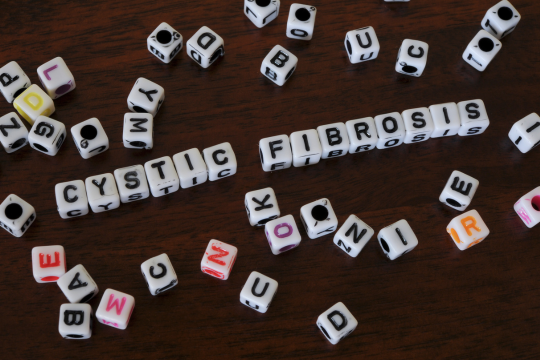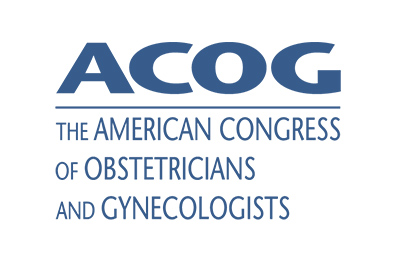June 20, 2024
Cystic Fibrosis
What is Cystic Fibrosis?
Cystic Fibrosis (CF) is a life-long illness that is usually diagnosed in the first few years of life. The disorder causes problems with digestion and breathing. Cystic Fibrosis does not affect intelligence or appearance.
What are the health needs of children with Cystic Fibrosis?
The digestive problems can usually be treated by taking daily medications. To treat lung problems, most children with CF need to have respiratory therapy for about half an hour every day; this helps clear mucus from the lungs. This is something the parents or other family members can do at home. Sometimes lung infections still develop. The children may need to be treated with antibiotics at home or in the hospital. However, the infections tend to become worse over time and more difficult to treat. Treatments are costly and may be burdensome without adequate health insurance.
Do all people with Cystic Fibrosis have the same symptoms?
No. Some individuals have milder or more severe symptoms than others for reasons that are not completely understood. It is not always possible to tell from a prenatal test how mild or severe a child’s symptoms will be. While most people with CF have a shortened life span, some die in childhood and others live into their 40’s or even longer. Although there is no cure for CF, research on more effective treatments is under way. Still, by adulthood, most people with CF will have some breathing and digestive problems. Despite these physical problems, there are many people with CF who attend school, have careers, and have fulfilling lives.
What is the purpose of Cystic Fibrosis carrier testing?
The purpose of CF carrier testing is to see if a couple is at increased risk for giving birth to a child who will have CF. Cystic Fibrosis carrier testing is a laboratory test done on a sample of blood or saliva. If testing shows that a couple is at high risk, additional testing can be done on the developing baby to see whether or not it will have CF. However, most women’s test results are normal. Cystic Fibrosis can not be treated before birth. The purpose of having this information about your developing baby is so you can prepare yourself to care for a child with special health care needs or so you can terminate the pregnancy.
What causes Cystic Fibrosis?
Cystic Fibrosis is a genetic disorder. All genes come in pairs, so everyone has two copies of each gene. One copy comes from your mother and the other from your father. Some genes do not function properly because there is a mistake in them. If a gene has a mistake, it is said to be altered or changed. For some diseases-like CF- both genes of the pair have to be altered for a person to have the disease.
If a person has one changed copy of a CF gene, that person is a carrier for CF. A carrier does not have CF. There is no known health problems associated with being a carrier of CF. If a person has two changed copies of the CF gene, they will develop CF.
When both partners in a couple are carriers, any child they have has a l in 4 (25%) chance to inherit a changed copy of the gene from each parent. A child with two changed copies of the CF gene will develop CF.
Could I be a carrier of Cystic Fibrosis?
Yes. You could be a carrier of CF even if no one in your family has CF and even if you already have children without CF. About one of every 30 white people (about 3 in 100 or about 30%) carries the changed gene. If your family background is not white your chance of being a carrier is less than 1 in 30. For example, some Asian-American groups have carrier rates of 1 in 90.
If a relative of yours has CF, or is known to be a carrier of CF, your chance of being a carrier is greater based on your family history than on your ethnic background.
If my test result is normal, could I still be a carrier?
Yes. There are some mutations in the CF gene that the current test cannot find. For this reason, you could be told your test result is normal and you could still be a carrier. Like most medical tests, this one has limitations because not all CF mutations are known. However, these unknown CF mutations are rare. The likelihood that you are a carrier even though you had a normal result is very small.
If the test shows that I am a carrier, what should I do?
If the test shows that you are a carrier, the next step is to test the baby’s father. Both parents must be carriers for the baby to be at risk for CF. If the father has a normal test result, the chance that your baby will have CF is very, very small. The remaining risk is because the test is not 100% accurate, as mentioned in the previous section.
What if both my partner and I are Cystic Fibrosis Carriers?
If two people who are carriers have a child, that child may have CF. When two carriers have a child together, there is a l-in-4 (25%) chance with each pregnancy that the child will have CF. This is true even if they already have other children with-or-without CF.
If CF testing shows both parents are carriers, you might then see a specialist for genetic counseling. This person could give you more information and help you decide if you want to test the baby for CF. This could be done around the 11th week of pregnancy using CVS (chorionic villus sampling). This involves removing a tiny piece of the placenta. Or it could be done around the 16th week of pregnancy using amniocentesis, a procedure where a needle is used to take fluid from around the baby for testing. If either test shows that the baby will develop CF, you could choose to either terminate or continue the pregnancy.
If I had Cystic Fibrosis testing, do I need it again?
If the test shows you are a carrier, the result is definite and will not change. However, if you are a carrier and have a new partner for a future pregnancy, testing should be considered for that new partner. If you test negative now and become pregnant in the future, you should discuss CF carrier testing at that time with your provider, as test technology changes.
How do I decide whether or not to have carrier testing?
After learning about CF carrier testing, some people decide to have testing, and others decide against it. The cost of testing is covered by some insurances and not by others. You may want to check with your insurance company before deciding if you want testing.
Listed as follows are some reasons other people have given for having or not having CF testing.
Possible reasons to be tested:
• If CF seems like a very serious disorder to you
• If the chance of being a CF carrier seems high to you; this may be especially likely if a member of your family or your partner’s family has CF or is a known carrier.
• If you and the baby’s father would consider amniocentesis or CYS to help you decide about continuing the pregnancy or to help you prepare for the birth of a baby with CF-if you were both found to be carriers.
• Because test results are usually reassuring
• Because the cost of testing is covered by your insurance
Possible reasons not to be tested:
• If CF does not seem like a serious disorder to you
• If the chances of being a CF carrier seems low to you; this may be especially likely if you are Asian American or African American
• If you and the baby’s father would never consider having amniocentesis or CVS-to help decide about terminating the pregnancy or preparing for the birth of a baby with CF-even if you were both found to be carriers
• Because the test is not perfect and will not identify all carriers
• Because the cost of testing is not covered by your insurance company
Resources to Learn More:
1. Cystic Fibrosis Foundation
6931 Arlington Road
Bethesda, MD 20814
I-800-FIGHT CF (1-800-344-4823)
www.cff.org
E-mail: info@cff@org
2. National Society of Genetic Counselors
Executive Office
233 Canterbury Drive
Wallingford, PA 19086-6617
1-610-872-7608 Press 7
www.nsgc.org Click on ResourceLink
3. Genetic Alliance
4301 Connecticut Avenue NW, Ste 404
Washington, DC 20008-2304
1-800-336-4363
www.geneticalliance.org
E-mail: [email protected]
This information duplicated from the American College of OB/OYN patient information booklet on “Cystic Fibrosis Carrier Testing: The Decision is Yours.”
Category:
Book Appointment
For new patients, call us to find a convenient appointment time or use our online Patient Portal to request an appointment.
Stay Connected with Our Community
Join us on Instagram for the latest updates, health tips, and a peek into our daily activities at the Women’s Center of Athens.
Contact Details
Copyright © 2023 . All rights reserved. Please read our Privacy Policy








